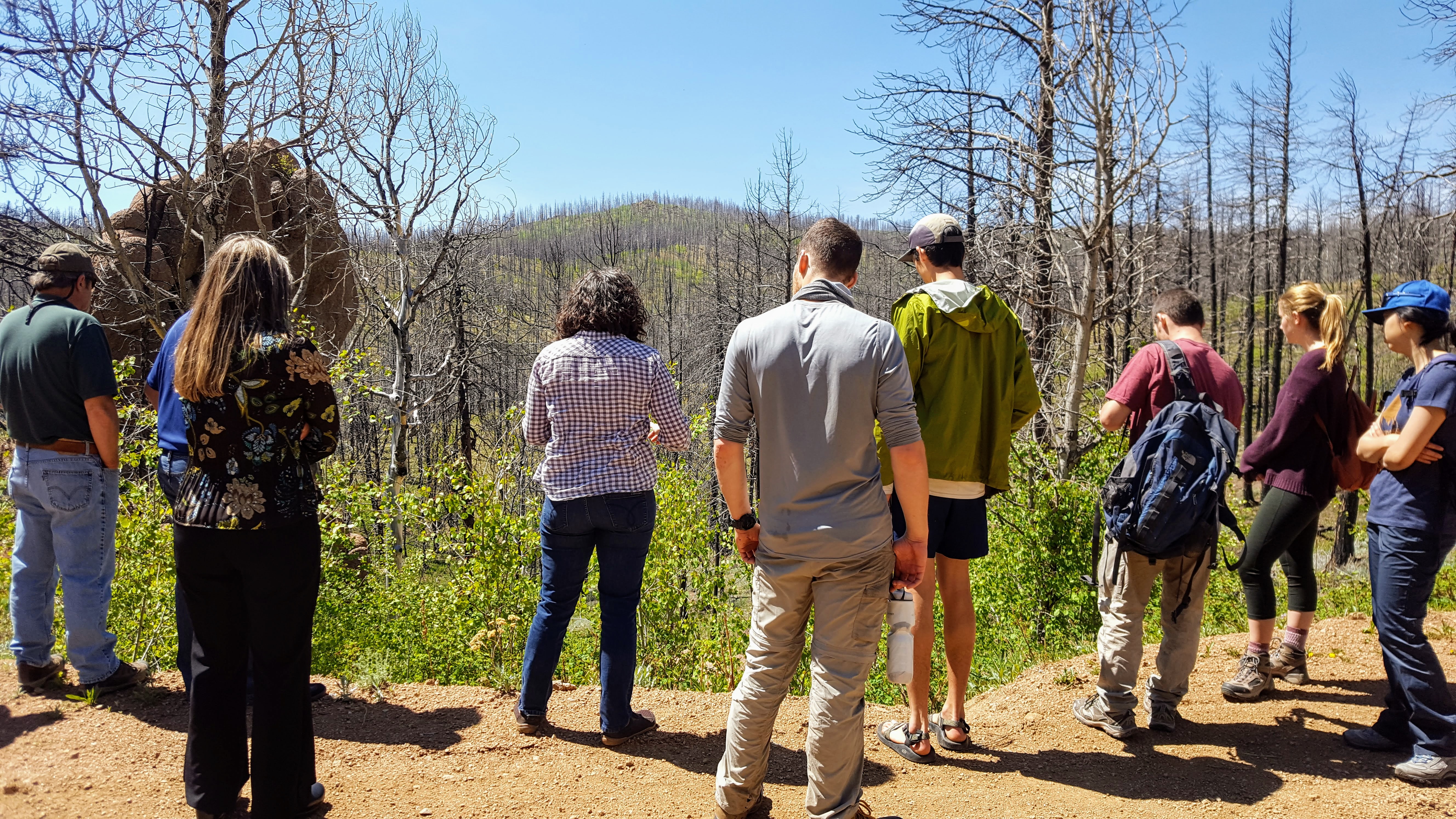About the Project
2018-2019 State of the Rockies Project
Urbanization and Nature in the Front Range
Colorado's population is one of the fastest growing in the country. Though many people are drawn here for the natural beauty and outdoor recreational opportunities offered in the state, rapid growth is putting pressure on these same resources. Climate change is further straining the state's environment, and drought, floods, and forest fires threaten many of Colorado's communities. Our current research explores the relationship among urbanization, nature, and climate change across the Front Range of Colorado, with a particular focus on the politics of social equity in climate adaptation.
2017-18 State of the Rockies Project
Western Forests in the Anthropocene
How will climate change reshape the forests of the American West? As temperatures rise associated with global climate change, ecological norms will shift-how can we expect our forested landscapes to react? How should our communities and policies react to this change?
Using the Pikes Peak region as a study area, the State of the Rockies Project will research the diverse life zones/biomes of the region from the alpine to riparian areas. Public scholarship and outreach will be a major component to the year's activities, as the Project will tie the summer student research to the speakers series during the academic year, and seek to facilitate an exchange of information relevant to Colorado Springs and the broader Rocky Mountain West.
In particular, The 2017-18 State of the Rockies Researchers plan to analyze impasses to the completion of the Ring the Peak Trail, as well as the economic value of the greater Pikes Peak Recreation Complex. Another team of researchers will investigate and model the Waldo Canyon Fire, and then apply lessons learned from the fire to an adjacent stand of forest that is overdue for a large natural fire. Another line of inquiry explores the impacts of public lands management on indigenous communities in the Pikes Peak Region, and the effects of policy change on social structure, cultural belonging, and political empowerment.
Engaging stakeholders and actors in forest management across the Front Range, we will see how the issues highlighted by the scientific community are affecting management decisions. By employing the traditional State of the Rockies model, we will work with students from across the disciplines to distill complex subjects into meaningful public scholarship in support of the Project's mission. By projecting challenges witnessed on a local scale in the Colorado Springs area to the larger Rocky Mountain West we may better understand how the entire region is already being impacted by climate change, and what transformations are yet to come.

2017 Summer Research
With a group of five students with diverse academic backgrounds, State of the Rockies is engaged in its fifteenth year of academic research. Each of our student fellows has adopted a particular focus within the topic of "forest health" to then explore and explain for the larger campus audience, and for our regional stakeholders and followers. Student fellows have been investigating their project through the student-faculty collaborative research approach that the Rockies Project has been utilizing for the last fourteen years. In addition to on-campus research, the students are also conducting field research throughout the Front Range and Arkansas River corridor. This year's researchers are focusing on recreation management strategies for the Pikes Peak area, methods for completing the complex Ring the Peak trail, modelling potential forest fires on Cheyenne Mountain, and the impacts of public lands management on Indigenous communities in the Pikes Peak Region.



